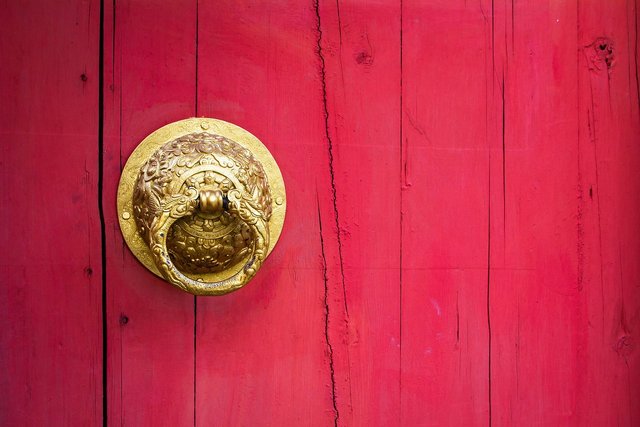7 Tips for Doing Business in China - Chinese Business Etiquette

Are you interested in doing business in China? Or are you wondering about the Chinese business etiquette? These are certainly excellent questions!
The Chinese economy is the world's second-largest economy by nominal GDP (Gross Domestic Product), which is an estimated 14.2 trillion USD in 2019. It is the world's largest economy by PPP (Purchasing Power Parity), which is an estimated 27.3 trillion USD in 2019. China is one of the world's fastest-growing economies, with growth rates averaging 6%.
From mining, manufacturing, and construction - the industry in China is booming. And the 900 trillion USD “New Silk Road”, China’s New Belt and Road Initiative (BRI), aims at reopening the trade corridor between China and the West. The current trade war with the United States does not seem to impact the Chinese economy much.
Hence, doing business in China is a great opportunity for any enterprise. In this week’s Tenba Group article read about the Chinese Business Etiquette and how to unlock the potential of this powerful market for your company.
7 Tips for Doing Business in China
The Chinese business culture has some special business etiquette, customs, behaviors, and manners. The Chinese business etiquette vs American (Western) may seem a more strict, hierarchical and formal.
Therefore, understanding the differences will help you to unlock the power of globalization and the limitless potential of the Chinese market for your business.

- Entrance protocol
- Make sure to enter the meeting room in order of seniority. You should actively demonstrate great respect to the head of the Chinese delegation. The person with the highest rank of your team should introduce the other members of your group.
- Tip: Try to get the names, positions and ranks of the Chinese partners you will meet in advance to prepare for your meeting and add them to your notes.
- Respectful greeting
- Nodding and smiling are common greetings. In official business meetings, a handshake must be initiated by your Chinese counterpart. Handshakes in China are not as strong as in the West - expect it to be soft and short. Keep eye contact brief. Too much eye contact may be interpreted as a challenge.
- Tip: Like the rest of the world, Chinese people appreciate it if you can use some Chinese words. You can say “您好” (nǐ hǎo – hi, hello) or “很高兴认识你” (hěn gāoxìng rènshí nǐ – Nice to meet you). Learn more practical Chinese phrases and practice the Chinese business etiquette in tailormade coaching by Tenba Group.
- Business cards
- Exchanging business cards is a key part of introductions when doing business in China. It is regarded as an extension of the person. Make sure to accept the business card with both hands and give yours to the Chinese counterpart with both hands as well (Chinese side of the business card up). Treating the business card carefully and studying it briefly before placing it in your business card holder, never in your wallet or pocket.
- Tip: Make sure you have your company details in Mandarin and English on your business card. If you need help with translating your name and business details to Chinese (simplified), Tenba Group is here to help.
- Never lose face
- Losing, giving or saving "face" is an essential Chinese concept. It can be translated to your honor, and the honor of those you are with. Avoid self-deprecation, sarcasm, open criticism and negativity.
- Tip: Stay respectful, factual and friendly. If there is a conflict or disagreement on the horizon, stay solution-oriented. For example: Say that you value their opinion or view. And another option could be *add your suggestion*. You can say “Maybe” or “We’ll think about it” instead of a harsh “No”.
- Tip: It's rude in China to point with your finger. Instead, point with your open hand or, if possible, make eye contact and get someone's attention without using your hands at all.
- Engage in business talk
- Chinese people, as does the rest of the world, often open conversations with an informal conversation. Questions like “你吃了吗?” (Nǐ chīle ma? Did you eat yet?) or “你去哪儿了?” (Nǐ qù nǎr le? Where have you been?) are popular ice breakers in Chinese culture. There is no need to answer in detail.
- Keep in mind that business meetings are often 95% conversational talk to get to know each other and see if you can become friends and thus do business together. Only 5% is actual business talk. It's quite the opposite of Western business meetings.
- Tip: The Chinese way is always to establish a good network, 关系(guanxi). Business is better among friends. That's why a Chinese businessperson first wants to gain a potential partner as friends. If they think you won't be a good friend, maybe too arrogant, they won't do business with you.
- Tip: Safe universal conversation topics include weather, travel, and food. Talking about your positive impressions of China in such aspects is always welcomed. Avoid political discussions, especially those related to Hong Kong, Taiwan, Tibet, and human rights in general.
- Bring a Gift
- Giving gifts to your Chinese business partners is almost an art. Gifts should not be too costly. And if your business counterparts are government officials, make sure you don’t give them a reason to mistake your gift as a bribe. In Chinese culture, clocks, watches, green hats, or chrysanthemums are often seen as symbols for bad luck and are therefore not suitable as gifts. When you receive a gift, accept it with two hands. Do not open the gift immediately unless the person who gives it to you asks you to.
- Tip: Electronics, tea leaves, red wine, fruits, silk and presents from abroad are valued gifts for Chinese business associates.
- After the meeting
- Wait until the host ends the meeting and allow the Chinese to leave first. They will leave the meeting in the order they came in (hierarchical). Make sure that your team also leaves in the correct order.
- Tip: It is typical for the Chinese to extend negotiations beyond deadlines. So, don’t remind your overseas colleagues about deadlines and feedback. Patience is a virtue. And most likely, a business deal will not close after just one meeting. Only when the personal relationship is established with your Chinese business partners, then the business deal moves forward.

These were the 7 tips for doing business in China. You have increased your knowledge of the Chinese business culture. Now, it’s time to put your understanding of the Chinese culture into practice.
Chinese Business Etiquette Revealed
The Chinese market offers sheer unlimited potential and business opportunities. Foreign companies planning a market-entry in China should follow the particular Chinese business etiquette to ensure long-term success for their global business.
In summary, respect, keeping one's face and hierarchy are essential among business people and society as a whole. Tenba Group revealed 7 hacks for doing business in China as well as practical tips.
These are 7 Chinese Business Etiquette Hacks
Entering the Chinese market and doing business in China properly is a timely process with lots of research and specific knowledge on how to target Chinese customers.
Tenba Group, the digital marketing agency of your choice, offers digital marketing services for China and around the world. Our state-of-the-art digital agency services are affordable and at the pulse of time. Unlock the advantages of digitalization in business for your company today!
From KOL marketing to WeChat advertising - your business can benefit from an expert on Chinese marketing for Western companies like Tenba Group. We can also help you to build a website for the Chinese market, or coach you for your next business meeting with Chinese partners.

Does this sound interesting, but you are not sure where to start? Why not test our digital agency services with our FREE audit of your online appearance. Our one-of-a-kind manual review checks your social media channels, user experience on your website, SEO, legal GDPR compliance and security. Contact us today! Tenba Group - Your Digital Link to China and the World.
Posted from my blog with SteemPress : https://tenbagroup.com/chinese-marketing/7-tips-for-doing-business-in-china/